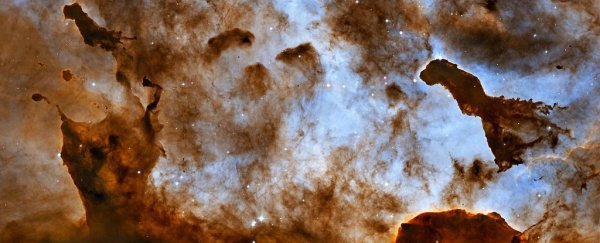Astrophysics is not the easiest science to wrap your head around, but Stephen Hughes from the Queensland University of Technology (QUT) is breaking it down into bite-size pieces. His book Gastrophysics explains hard astrophysics concepts, like how the Universe expands, with recipes from the kitchen.
"Many people automatically think astrophysics is too difficult to understand so they're reluctant to try," he said. "But it's amazing how easily you can become fascinated with the Universe and its workings when they're explained in terms you can relate to."
One of his favourite recipes is Hubble Damper - a type of bread originating from Australia. When the dough rises, the raisins in the dough move further apart from each other. "It's a surprisingly accurate analogy of the expansion of the Universe. For example, two raisins stuck together don't move apart because there's no dough to push them apart. This is exactly what happens with galaxies that are close together."
This kind of cooking based teaching has been perfected for the last decade, with Hughes explaining that his tried and true recipes have been used on his science and engineering students at QUT.
"I've always been interested in drawing connections between terrestrial physics and celestial physics because people often find it easier to understand things happening on Earth - what they can easily see and touch," Hughes said.
The book has many other experiments that you can try at home, such as dropping chocolate balls onto a salad bowl that is covered with plastic wrap to explain gravity and gravity wells.
Hughes insists that they are all simple experiments that can be done with household items. It's also an interesting way to teach complex astrophysics to kids and adults alike.
This isn't the first time that scientists have been cooking up a storm for science. A few years ago, we posted a story about Nathan Shields, who cooks pancakes for his kids in the shape of cephalopods.
The book, Gastrophysics is available on iTunes and promises it's completely free of mathematics, just full of delicious recipes. And you'll be able to learn something about astrophysics in the process. For Hughes, this book is also an educational experiment, "I'd love to receive feedback from readers about how 'digestible' the book is."
Queensland University of Technology is a sponsor of ScienceAlert. Find out more about their research.
